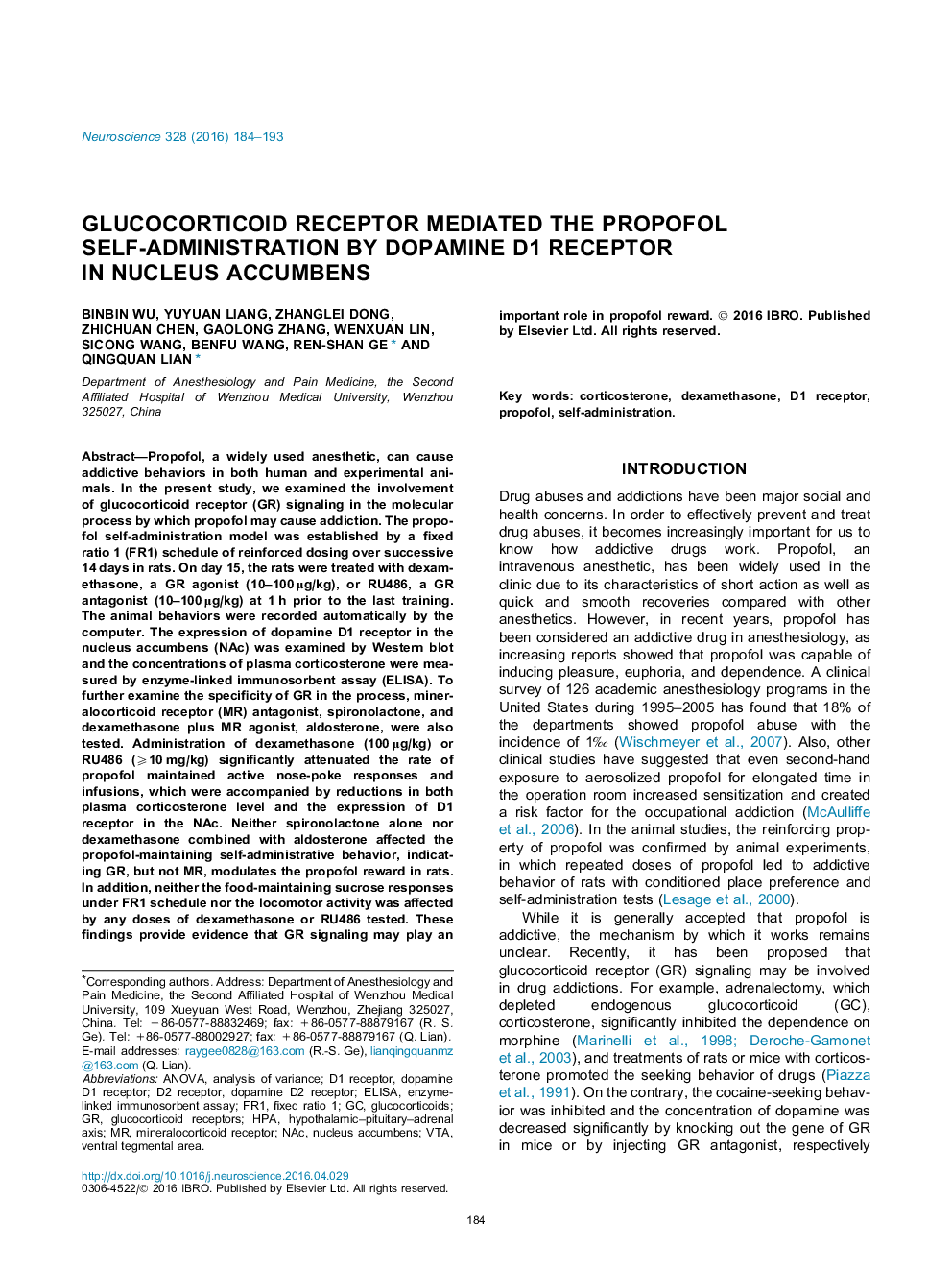| Article ID | Journal | Published Year | Pages | File Type |
|---|---|---|---|---|
| 6271115 | Neuroscience | 2016 | 10 Pages |
â¢Dexamethasone reduces plasma corticosterone levels.â¢Dexamethasone down-regulates the expression of D1 receptor in the NAc.â¢RU486 down-regulates the expression of D1 receptor in the NAc.â¢GR not MR blockade reverses propofol addiction.
Propofol, a widely used anesthetic, can cause addictive behaviors in both human and experimental animals. In the present study, we examined the involvement of glucocorticoid receptor (GR) signaling in the molecular process by which propofol may cause addiction. The propofol self-administration model was established by a fixed ratio 1 (FR1) schedule of reinforced dosing over successive 14 days in rats. On day 15, the rats were treated with dexamethasone, a GR agonist (10-100 μg/kg), or RU486, a GR antagonist (10-100 μg/kg) at 1 h prior to the last training. The animal behaviors were recorded automatically by the computer. The expression of dopamine D1 receptor in the nucleus accumbens (NAc) was examined by Western blot and the concentrations of plasma corticosterone were measured by enzyme-linked immunosorbent assay (ELISA). To further examine the specificity of GR in the process, mineralocorticoid receptor (MR) antagonist, spironolactone, and dexamethasone plus MR agonist, aldosterone, were also tested. Administration of dexamethasone (100 μg/kg) or RU486 (⩾10 mg/kg) significantly attenuated the rate of propofol maintained active nose-poke responses and infusions, which were accompanied by reductions in both plasma corticosterone level and the expression of D1 receptor in the NAc. Neither spironolactone alone nor dexamethasone combined with aldosterone affected the propofol-maintaining self-administrative behavior, indicating GR, but not MR, modulates the propofol reward in rats. In addition, neither the food-maintaining sucrose responses under FR1 schedule nor the locomotor activity was affected by any doses of dexamethasone or RU486 tested. These findings provide evidence that GR signaling may play an important role in propofol reward.
Graphical abstractDownload high-res image (198KB)Download full-size image
